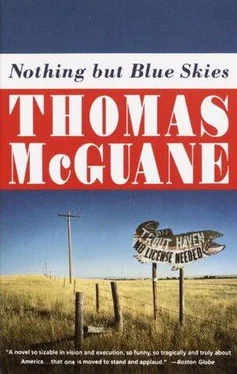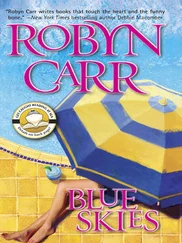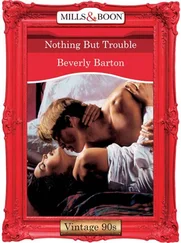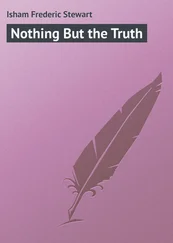“What did you think about Clarence Thomas and Anita Hill?”
“I wasn’t smart enough to follow it. I wouldn’t exactly call them a couple.”
“Look at what I’ve salvaged,” said Phil of the neat pile of salad ingredients.
The phone rang and Frank answered while gesturing approvingly at the vegetables. It was Jerry Drivjnicki calling to say that he realized that what happened wasn’t Frank’s fault.
“What’s past is past,” said Frank philosophically, yet wondering if his regular dry cleaner would take umbrage at the pigshit embedded in the camel’s hair.
“Olav Finberg won the darn thing,” said Jerry. “That’s when I began to think. He had two pigs in it and one was no good. In fact, that one pig was out of control. That was the one that took you for a ride. That pig couldn’t have won nothin’. After the wreck was over, Olav was standing there with his good pig, and the judge was so rattled he let Olav win.”
“Was Olav that farmer standing right behind me?”
“That’s Olav.”
Frank sighed. “Well, I tell ya, Jerry, I’m all pigged out. They seemed to fit when my life was in a different place, but that time is gone.”
“Frank, if the pigs ain’t doing for you what you want, I’ll get you back out. Just say the word.”
“I took it from you that it was over with today, Jerry. Let’s keep it that way.”
“Okay, Frank.”
Jerry hung up, then Frank hung up. Frank could tell by the way Jerry signed off that he was miffed. He hoped the next pig he saw was at a barbecue.
Phil said, “You got anything to drink?” This was clearly about the drink itself and also about need in general. The request was accompanied by a brief, solemn gaze that was made forlorn by Phil’s long beard. Frank knew what to make Phil, a simple bourbon and water; and he made himself one too. He was glad to see Phil, glad to take a moment out with a friend, a moment away from the linearity of his recent life to just do some simple drinking.
Phil wore a shirt that seemed to be made out of pillow ticking and Frank was reminded how he often thought Phil looked like a Gallatin County pioneer, maybe a small stock farmer or someone who sold whiskey to the Indians. He had that blank look he associated with local frontiersmen in photographs, which probably had more to do with the instructions of the photographer to not move and spoil the portrait than it did with the actual personalities of the subjects. From that, Frank, like most people, had surmised that a bleak view of the world prevailed a hundred years ago. If it weren’t for their written materials, which revealed a new Eden, this great technological breakthrough would have maligned them for all time. Phil looked like a victim of photography; Frank knew he was full of enthusiasms but he didn’t let them show very much.
“Frank, I didn’t have a great week.” They were in the front sitting room, one of the fussy, semi-formal spaces in this Victorian house that Frank and Gracie had bought out of a piety about the olden days. It had one inconvenient room after another. They had never known where to put Holly, from infancy through childhood and high school years. It was an atmospheric setting for some thoroughly ersatz elements of their life as a family: tall-ceilinged rooms with heavy-metal band posters, a sewing room filled with sporting gear, family recipes on the word processor, microwave Cajun cookbooks, mountain bikes in the front hall. This evening, you could see the place eating at Phil in the form of discomfort as the poor bastard tried to find a soft spot in a seventy-two-year-old wing chair.
“Smokie left too,” he said.
“How are you taking all this?”
“I’ll live,” said Phil.
Frank saw a tremor in his face. “Phil, is there anything I can do?” he said after a moment. Abruptly, Phil began to weep. Frank felt an ache go through him, a helpless surge, and it was awkward. Through the racking sobs and streaming tears, Phil must have perceived Frank’s discomfort. He began waving at him. Frank thought he was being told to do something but he couldn’t make out what. The phone began to ring. Frank decided not to answer it. Phil clamped his hands on the arms of the chair and sank into it. His whole body was jerking while the phone rang. “Turn on the radio,” Phil moaned. “I gotta get out of this.”
Frank turned on the country station. A reverent interview with Dolly Parton from Dollywood, her theme-park home, was in place. The two men began to listen. Phil had difficulty but he was paying attention. Evidently, “country” was where “family” counted; references to the Mama figure and the Daddy figure. You could feel her dimples come over the airways. And now for the vibrato that built it all, sassy and dramatic, equally at home in Appalachia and Rodeo Drive: “The Coat of Many Colors.” As though each man were assigned one of Dolly’s big breasts, the room grew calm. They gazed off in comfortable friendship, the ghastly weeping now subsided into tolerable ungainliness. They sucked down the bourbon.
“How did we get in so many wrecks, Frank?”
“Jeez, Phil, I’m stuck. How’s the chili?”
“It’s good. I feel better. I mean, I feel like an asshole but I feel better. I didn’t mean to get so upset. I guess I figured I could. We been in a lot of corners before. I guess I had it coming. Before Kathy, I turned some nice kids into whores. Course, I had to be one too, to do it. Used to take them in the caboose all the way to Forsythe, supposed to be watching for fires along the track, and we’d be rolling numbers and having us a big old time. Lucky old Smokie didn’t give me the chance to do it to her. Part of me is proud of it. So, if you’re never gonna grow up anyway, might as well have a good cry.”
“I’ve been reading where it’s supposed to be good for you,” said Frank. “Men are starting to get into it. All around the country.”
“Do you do it?”
“Not much.”
Phil sighed. “I’m gonna get me a big, grateful, coyote-ugly type of gal one of these days and settle down for the long haul.”
It was quiet for a moment.
“I suppose we ought to eat something at some point.”
“I don’t know about this chili. You can sort of taste the can.”
Frank set two fresh drinks on the table with a significant clunk. A sudden light from passing cars shuddered on the walls. There was a pile of newspapers he hadn’t gotten to. These sorts of things acquired a strangeness when you were living alone. Your sense of adventure goes into your marriage, and when the marriage is gone you’re stuck with a hundred versions of a road map when you’re not planning a trip. Frank bobbed his ice cubes with his forefinger and smiled to himself. A lot of men in the news these days blubbering. It was supposed to be the sign of a real man, but it just didn’t look right to Frank. Although with Phil it seemed okay.
Phil had been talking: “… Plus — plus — shit.”
“What?”
“I don’t know.”
“Do you think it’s hopeless with women, Phil?”
“Yes, I do.”
“Any women?”
“That’s been my experience.”
“Is your wife going to live with that doctor?”
“I doubt it. She’s just graduated to one of his little somethings on the side. That’s a hell of a category, isn’t it? But that’s what she wants to be.”
“You care for some of these newspapers?”
“Naw.”
“I don’t know what my wife is up to either. She just seems to be circling the airport. She’s sort of around again, and to be perfectly honest it makes me nervous.”
“I don’t know what the fuck they want,” Phil said.
“Nervous and sad and crazy. I don’t know quite what it means. I was going to think about it tonight. I always figure these things out just before I go to sleep. But with men and women, it seems everyone wants the authorities to intervene. You sort of picture lawsuits being the ideal relationships of the future. At least you can kind of let it happen.”
Читать дальше












